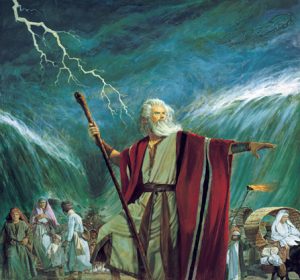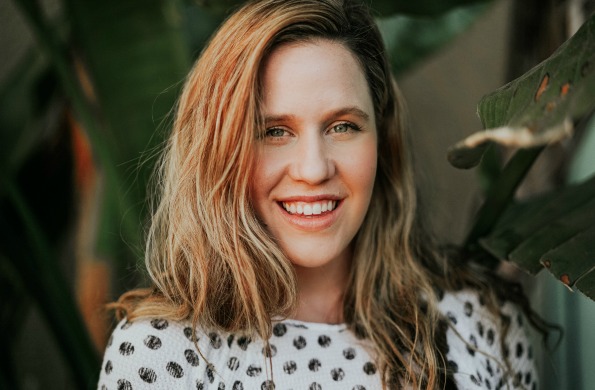“We find a powerful example of the interaction among assurance, action, and evidence as the children of Israel transported the ark of the covenant under the leadership of Joshua (see Joshua 3:7–17). Recall how the Israelites came to the river Jordan and were promised the waters would part, and they would be able to cross over on dry ground. Interestingly, the waters did not part as the children of Israel stood on the banks of the river waiting for something to happen; rather, the soles of their feet were wet before the water parted. The faith of the Israelites was manifested in the fact that they walked into the water before it parted. They walked into the river Jordan with a future-facing assurance of things hoped for. As the Israelites moved forward, the water parted, and as they crossed over on dry land, they looked back and beheld the evidence of things not seen. In this episode, faith as assurance led to action and produced the evidence of things not seen that were true” (David A. Bednar, “Seek Learning by Faith,” February 2006).

Moses parting the Red Sea
I remember the first time I read about the waters not parting until the children of Israel got their feet wet. It is a concept I have pondered many times. It was in the workbook of the first self-reliance class my husband and I took on personal finances. It illustrated that the Lord blesses effort. I’ve learned that Heavenly Father “can’t steer a parked car.” As long as I am anxiously engaged in good works, I know that the Lord will guide my path even though I often don’t have a clue what the next step is going to be. We don’t have to have all the answers; rather, we have to be willing to be obedient and put our heart and soul into whatever task the Lord may ask us to do.
Working with the Addiction Recovery Program, I am blessed to be the group leader of amazing sisters who are striving to strengthen their faith after learning that their spouse has been struggling with pornography and sex addiction. Needless to say, they bring with them a mountain of emotion and are putting forth every effort to find answers, heal their broken hearts, and strengthen their will to pick up the pieces.
Elder Bednar once asked Elder Maxwell what lessons he had learned through his lengthy and painful struggle with cancer. He said:
“I will remember always the precise and penetrating answer he gave. ‘Dave,’ he said, ‘I have learned that not shrinking is more important than surviving'” (David A. Bednar, “That We Might “Not . . . Shrink,” March 2013).
“Not shrinking is more important than surviving” echoes another of my favorite quotes from Wendy Ulrich: “Our learning is more important than our failures.”
Elder Bednar later stated:
“I do not know why some people learn the lessons of eternity through trial and suffering—while others learn similar lessons through rescue and healing.”
I am beginning to understand that my learning was more important than my failures, and I am much kinder with myself as I reach out in ministering efforts to those around me. I have come to understand the importance of developing emotional resilience and I enjoy teaching those skills to others.
I don’t recall having any formal education that included the principles that foster emotional resilience, which seems very sad to me considering the emotional turmoil that accompanies adolescence and young adulthood. The value of emotional resilience is that you can think more clearly in a crisis or emergency, or in participating in crucial conversations. A crucial conversation is a discussion between two or more people where stakes are high, opinions vary, and emotions run strong. When we face crucial conversations, we can do one of three things: We can avoid them, we can face them and handle them poorly, or we can face them and handle them well.
Here are a few key goals of using emotional resilience in high stakes conversations:
- Crucial conversations provoke an over-emotional and irrational response.
- The best solutions only arise when people freely share information in crucial conversations.
- Stay focused on your goals in a crucial conversation to prevent becoming overly emotional.
- People are more likely to behave aggressively in conversations where they don’t feel “safe.”
- Create safe conversations by ensuring that people feel like you respect them and their interests.
- Manage your emotions by ensuring that you’ve gotten the facts straight before you interpret.
- Make others feel safe in a conversation by creating an atmosphere where they feel their opinions are valued.
How do we learn these skills — and pass them on to our children? We can understand this better when we understand the difference between being a “helicopter parent” and a “lighthouse parent.”
The primary reason most parents become helicopter parents is because they want their children to be safe. “Hovering” sends the message you don’t trust your child to be successful without you. Think beyond the present moment and let life teach its lessons. Step in when safety is at stake.
From the moment our children are born, we want to protect them. The drive to keep them safe is ingrained in our parental DNA. Our children are born helpless. As they grow, their survival depends on us less and less.
One of the greatest challenges of parenting is figuring out how best to protect our children — now and far into the future. If we thought only of the now, perhaps the best strategy would be to fight like a mama or papa bear and pounce every time danger approached, or hover close by to assure our children never stray too far.
But hovering and pouncing push them away from us, and we may create insecurity within them. We can unintentionally send the message, “I don’t think you’re capable of handling this on your own.” Because the fundamental question of adolescence is “Who am I?” anything we do that stifles our adolescents’ self-discovery can backfire. When we shut them down as they push and test limits, it can unintentionally cause them to push us away.

To read more of Sonja’s articles, click here.
As a “lighthouse parent,” we understand our job as parents is to prepare our children for the journey they will navigate without us. They must learn to make their own decisions and choose their own safe and moral paths. One of the hardest questions of parenting is “How do we protect our children while also letting them learn from life’s lessons?” We know that it is life’s lessons that prepare young people to take on the world independently. But these lessons have their greatest effect when we guide our children to avoid danger in the first place. When we let them approach new experiences already equipped with existing skill sets ready to be sharpened. Finally, we must be prepared to underscore and reinforce the lessons calmly and respectfully without “I told you so!” judgment.
I think about the war in heaven… Lucifer’s plan was to be a helicopter parent. Jesus’ plan was to be a lighthouse parent. The plan chosen was the one Heavenly Father continues to demonstrate. When I look at the increasing wickedness in the world, I know that Heavenly Father could stop all of it. He could smooth the path and remove all danger. He could keep us in the safe harbor, and yet He sent us here to prove ourselves — because our learning is more important than our failures.
When you think of the behaviors of lighthouse parents, you can see the pattern of how Heavenly Father parents us — and blesses our efforts.
He doesn’t give unconditional approval.
- Unconditional love does not mean you approve and support all of their behaviors and actions. If your children are being rude or offensive, or if your children are hurting others, that kind of behavior should still be unacceptable no matter how much you love your children.
He allows His children to fail.
- It makes sense: in order for your children to grow up to be functioning members of society, they must be able to handle failure and know how to come out only slightly unscathed. Failure teaches resilience, and parents should let their kids face age-appropriate challenges on their own and with minimal guidance.
He is not overprotective.
- We know He’s nearby in case we need Him. He’s also not running after us monitoring our every move.
He sets appropriate expectations.
- Setting realistic age-appropriate goals allows children to succeed in those goals and thereby fosters confidence and self-reliance.
He fosters coping skills and mechanisms.
- Children are balls of emotions, and handling emotions and coping with stress and anxiety and fear aren’t skills that come naturally to most people. Therefore, it’s up to the parents to help children learn coping skills. In our house, we use breathing techniques (prayers), time-outs (meditations/pondering), and writing (journaling) to help us deal with our emotions in a constructive way.
The scriptures invite us to be grateful for all things that the Lord sees fit to bring into our lives. We’re told that whom He loves, He tests. Tests? Yes — He also gives us the way to succeed, to overcome whatever besets us. Here are just a few important things I know about my Heavenly Father and about what He will and will not do:
- He will not give me more than I can bear.
- He will not save me from the natural consequences of my choices.
- He will not force me to obey.
- He will not abandon me.
- He will not change his mind about me.
- He endowed me with a strong body, a strong spirit, and an unconquerable will to return home.
- He comforts me.
- He strengthens me.
- He LOVES me so much that He gave me the gift of His Only Begotten Son so I can risk to learn wisdom from that which I experience. I can access His divine help as I humble myself to let go of that which I cannot do and ask for His hand of mercy to be upon me.
- The Atonement not only heals me from the sins I have committed, it also heals me from the pain caused by the sins of others. Most precious to me is that the Atonement will also heal the pain I have caused others.
We have a loving Heavenly Father who has given us the opportunity to learn to overcome the world as our Savior did. And always… He blesses effort.
Sonja lives with her husband, Dale, on Anderson Island, Washington. She and her husband are Church Service Missionaries serving in the Addiction Recovery Program, focusing on pornography and sex addiction. She is also a certified life coach and teaches “Life Skills for Emotional Self-Mastery” in her stake twice a month. She does not teach you only to process something traumatic done to you in the past; rather, she helps you learn to feel it, heal it, and LET GO of whatever you still do to yourself and to others in order to cope with what was done to you in the past.






